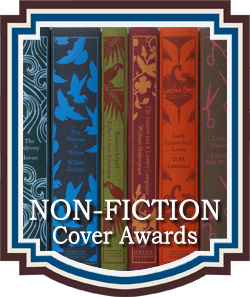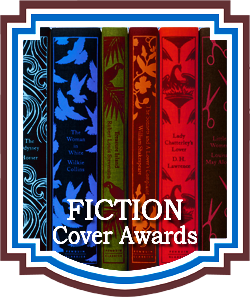|
Listen to or download this article:
|

The Goethe Awards are here!
and we want your Historical Fiction!
Submissions Deadline for the 2024 Goethe Book Awards for Post-1750s Historical Fiction is July 31st!

Named after Johann Wolfgang Von Goethe (1749-1832), Considered one of the most influential writers in the German Language, The Goethe Award covers Historical Fiction from the Time Period of His lifetime and afterwards, 1750-20th Century.
Why do we like Johann Wolfgang von Goethe so very much? It’s simple! He’s the guy who wrapped up everything we believe in with this simple sentence:
“Whatever you can do or dream, you can begin it. Boldness has genius, power, and magic in it.” – Goethe
In his lifetime, he saw the beginning of the Industrial Revolution in 1750 through Mary Shelley’s publishing of Frankenstein in 1818 – and everything in between! Check out the list of what happened during those nearly seventy decades at the end of this post – you will be A-MAZED!

The CIBAs Levels of Achievements. Books are promoted each time they advance!
The Categories in the Goethe Awards are:
- Regency, Edwardian, Georgian
- Turn of the Century
- 20th Century
- World/International History Post 1750s
- U.S. History
- 1830s – 1900s Victorian Era
As you may have noticed, some of the Goethe Awards categories extend even a little beyond our chosen Time Period. Lets take a look!
The Georgian Era and Regency covers the reigns of four King Georges of Great Britain.

A very handsome King George I
While the period starts in 1714 when the German King George I began his Reign, we don’t get into the 1750s until George III began his reign in 1760. You may have seen a version of his early reign in the recent Netflix show and Bridgerton spinoff Queen Charlotte, or as a character in the award-winning Broadway musical Hamilton.

Corey Mylchreest as Young King George in Bridgerton.
George IVs reign is more often called the Regency, as he was acting as Prince Regent from 1811 until his father’s death in 1820, and he continued as king until his own death in 1830.
At which point we get to the Victorian and Edwardian eras. Queen Victoria took the throne in 1832 until her death in 1901, and the Edwardian covers her sons reign in the early 1900s until WW1.
This award division covers time periods anywhere from the American Revolution, the Industrial Revolution beginning in the late 1700s, and can go all the way to the Dust Bowl of the 1930s. American, European and The Rest of the World are all covered. (See the list of 27 Events that Happened During Goethe’s Lifetime at the end of this post.)
Note: While the Goethe Awards categories have some leeway, the question we often return to when discussing with authors who have work on the edge of this time period is “does it mostly take place here?” and “does it fit with the feel and style of Late Historical genres?”
There are three other historical divisions in addition to the Goethe Awards:
- The Chaucer Awards for Early Historical Fiction
- The Laramie Awards for Americana Fiction
- The Hemingway Awards for 20th c. Wartime Fiction.

And the Goethe Awards close in July! Don’t miss your chance to submit today!
Now for a bit more on Goethe himself.
Theater Director of Frankfurt for decades, Playwright, Scientist, Novelist, Politician and more. One of his best works is a posthumously published play named Faust.
Faust is a German legend based on a real man, Renaissance alchemist and astrologer Johann Georg Faust. Supposedly selling his soul to the Devil for power and knowledge, his is a story that has been told many times over. As plays by Goethe, Christopher Marlowe (Although some believe Marlowe’s was actually written by his friend William Shakespeare), and Gertrude Stein.
The legend of Faust continues today as a short story by Washington Irving, in Oscar Wilde’s The Picture of Dorian Grey, one of Terry Pratchett’s Discworld novels, and an inspiration behind Queen’s hit song, Bohemian Rhapsody.
Goethe’s own works inspired many things, musical pieces from Beethoven (who rather admired Goethe), Schubert and Liszt, and multiple films, including one by Nosferatu director FW Murnau.
Goethe in general was a fascinating person. Meeting some of the most famous people of his time, Like a meeting with Napoleon in 1808 where Napoleon revealed one of his favorite books to be Goethe’s Sorrows of Young Werther. And even though he rather disliked the Romanticism movement, Romantic artists and writers are the people he influenced the most.
Fast Forward to more Modern Times: The Grand Prize Winner of the 2023 Goethe Award!
If Someday Comes
By David Calloway


While a full review is forthcoming, here’s what early readers are saying:
A book you need right now. Sentence structure, character, and scene development are fully unpacked here. Excellent pacing with a great inclusion of the facts around the civil war, slavery, and presidential figures. The reading is driven forward by the story coupled with the simple rich historical depth.
Visit the Author’s Website today to learn more and buy it here on Amazon!
Got a great read? Submit to the CIBAs today!
Some events that occurred during Goethe’s lifetime:
1750 – The Industrial Revolution began in England
1756 – Wolfgang Amadeus Mozart was born in Salzburg Austria
1761 – The problem of calculating longitude while at sea was solved by John Harrison
1765 – James Watts perfects the steam engine
1770 – Ludwig van Beethoven was born in Bonn, Germany
1774 – Goethe’s romantic novel, The Sorrows of Young Werther, propels him into European fame
1774 – Goethe’s play Gotz von Berlichingen, a definitive work of Sturm und Drang premiers in Berlin
1776 – America’s 13 Colonies declare independence from England. Battles ensue.
1776 – Adam Smith publishes the Wealth of Nations (the foundation of the modern theory of economics)
1776 – The Boulton and Watt steam engines were put to use ushering in the Industrial Revolution
1783 – The Hot Air Balloon was invented by the Montgolfier brothers in France.
1786 – Le Nozze di Figaro by Mozart premiered in Vienna
1789 – George Washington is elected the first president of the United States of America
1780 – Antoine Lavoisier discovers the Law of Conservation of Mass
1789 – The French Revolution started in Bastille
1791 – Thomas Paine publishesThe Rights of Man
1792 – Napoleon begins his march to conquer Europe
1799 – Rosetta Stone discovered in Egypt
1802 – Beethoven created and performed The Moonlight Sonata
1802 – A child’s workday is limited to twelve hours per day by the British parliament when they pass their first Factory Act
1804 – Napoleon has himself proclaimed Emperor of France
1808 – Atomic Theory paper published by John Dalton
1811 – Italian chemist Amedeo Avogadro publishes a hypothesis, about the number of molecules in gases, that becomes known as Avogadro’s Law
1811 – Jane Austen’s Sense and Sensibility was published anonymously. It was critically well-received.
1814 – Steam-driven printing press was invented which allowed newspapers to become more common
1818 – Mary Shelley publishes Frankenstein
1832 – Goethe’s Faust, Parts 1 & 2 are published posthumously (March 22, 1832)
Resources
***New Yorker Magazine






Leave A Comment